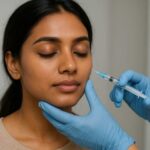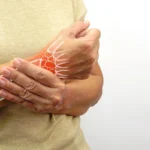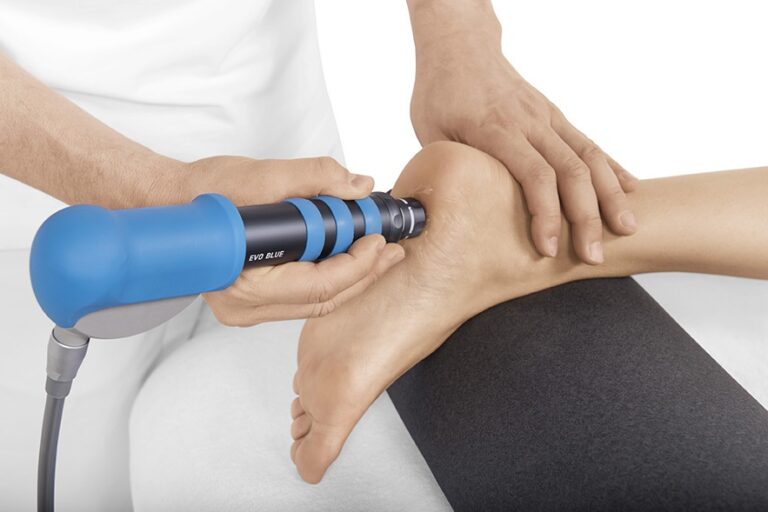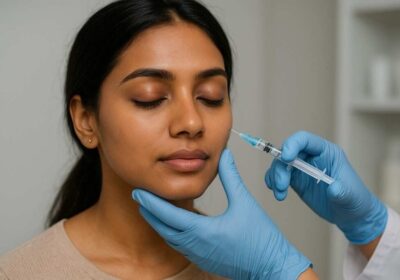
Mind-Skin Connection: Unlock the Secrets to Healthier Skin
The relationship between our mental state and dermatological wellbeing represents a fascinating area of modern science. Rather than being separate entities, psychological factors and skin health are deeply intertwined in what experts call psychodermatology.
Our largest organ serves as both a protective barrier and a visible indicator of internal wellbeing. It responds directly to emotional states, stress levels, and mental health conditions through measurable physiological changes.
The growing recognition of this bidirectional relationship has led medical professionals to develop integrated approaches. Clinical insights from specialists, including those at Surgical Arena Ltd and The Psychodermatologist, demonstrate how each aspect influences the other.
Many people experience stress-related breakouts or flare-ups that validate this scientific principle. These common occurrences provide tangible evidence of the powerful mind-skin connection in action.
This comprehensive guide combines research, clinical perspectives, and practical strategies. It offers readers holistic methods to achieve better dermatological results by addressing both physical and psychological factors.
Key Takeaways
- The skin functions as both a protective barrier and reflection of internal health
- Psychological states directly influence dermatological conditions through physiological pathways
- Psychodermatology represents an established medical field recognising this bidirectional relationship
- Stress-related skin issues provide common, tangible evidence of this connection
- Holistic approaches addressing both mental and physical factors yield optimal skin health results
- Integrated strategies combining clinical insight with practical application offer the most comprehensive solutions
- Professional guidance from specialists ensures evidence-based approaches to skin wellbeing
Introduction to the Mind-Skin Connection
The intricate dialogue between our psychological state and the health of our skin forms a core principle of psychodermatology. This bidirectional pathway means mental wellbeing influences dermatological conditions, and skin health impacts psychological state.
Defining the Connection Between Mind and Skin
This relationship is facilitated by the body’s major systems. The nervous, endocrine, and immune systems work together, transmitting signals that create a complex communication network.
The skin, being the body’s largest organ, serves a dual purpose. It acts as a protective barrier and a sensory interface, providing feedback on both emotional and physical states.
Stress hormones like cortisol play a significant role. They can trigger inflammatory responses in the skin, leading to flare-ups of conditions such as eczema or acne.
Understanding this dynamic empowers individuals. It highlights that caring for mental health can be as crucial as topical treatments for achieving healthy skin.
Common examples of this link in action include stress-induced breakouts or anxiety-related hives. These are tangible demonstrations of the internal dialogue becoming visible.
| System | Primary Role | Key Mechanism |
|---|---|---|
| Nervous System | Rapid Signal Transmission | Releases neurotransmitters in response to emotional states |
| Endocrine System | Hormone Regulation | Produces stress hormones like cortisol that affect skin inflammation |
| Immune System | Inflammatory Response | Modulates skin immunity, which can be influenced by psychological stress |
This holistic way of thinking about skin care integrates mental and physical approaches. It offers a more comprehensive strategy for long-term dermatological wellbeing.
The Science Behind the Mind-Skin Connection
Scientific investigation provides compelling evidence for the biological pathways linking psychological states to dermatological outcomes. Multiple clinical studies demonstrate measurable physiological mechanisms rather than pseudoscientific claims.
Latest Research and Clinical Studies
A 2016 study of 120 dermatology outpatients revealed that mindful awareness correlated with reduced distress and better skin-related quality of life. Approximately one-third reported significant social anxiety, highlighting the psychological burden.
Stress hormones like cortisol and corticosterone directly impact cellular functions. Research shows they affect cell proliferation, wound healing processes, and inflammatory responses.
| Study Year | Focus Area | Significant Finding |
|---|---|---|
| 2016 | Mindfulness | Improved dermatological quality of life with mindful awareness |
| 2018 | MBSR Programme | Reduced skin permeability and inflammatory markers after 8 weeks |
| 2019 | Psoriasis | Psychological factors both trigger and result from psoriasis symptoms |
| 2020 | Mental Health | Significant depression and suicidal ideation among psoriasis patients |
Mindfulness, Inflammation and Skin Health
An 2018 study found that Mindfulness-Based Stress Reduction produced measurable skin benefits. Participants showed improved barrier function and lower inflammation markers.
Research into psoriasis reveals a challenging cycle where psychological distress triggers flare-ups. The visible condition then creates further anxiety for patients.
These findings underscore the importance of addressing mental health in dermatological care. Integrated approaches offer the most comprehensive solutions for skin health.
Psychodermatology: Merging Mental Health and Dermatology
The clinical field of psychodermatology has emerged to provide integrated care for patients whose skin and mental health are deeply intertwined. This specialty acknowledges that these aspects cannot be effectively treated in isolation.
Research reveals a striking prevalence of psychiatric disorders among dermatology patients. Figures range from 30% to 40%, which exceeds rates seen in individuals with cancer or heart conditions.
Recognising Psychodermatologic Signs
Psychodermatologic disorders generally fall into three primary categories. Understanding these helps in identifying the appropriate treatment path.
- Skin Affecting Mind: Visible conditions like psoriasis or severe acne can cause significant psychological distress, including feelings of shame or depression.
- Mind Affecting Skin: Psychiatric conditions may manifest through skin symptoms, such as compulsive hair-pulling (trichotillomania).
- Emotional Triggers: Common skin conditions like eczema and rosacea are often exacerbated by stress and anxiety.
Recognising patterns, like flare-ups after stressful events, is a key psychodermatologic sign.
Collaborative Treatments and Care Approaches
Effective management requires a collaborative approach. Dermatologists, psychiatrists, and psychologists work together to create comprehensive care plans.
This multidisciplinary strategy addresses both the visible skin symptoms and the underlying psychological factors. The goal is to improve the overall quality of life for individuals.
For many patients, this holistic model of treatment offers more sustainable health outcomes than focusing on just one aspect of their condition.
The Role of Stress in Skin Conditions
The body’s response to psychological pressure creates visible effects on the skin through complex hormonal and inflammatory mechanisms. Research from Surgical Arena Ltd and other clinical sources demonstrates clear physiological pathways connecting psychological stress to dermatological inflammation.
Insights from Surgical Arena Ltd
When the body experiences stress, it activates the sympathetic nervous system. This triggers a cascade of responses including hormone release and inflammatory pathways that directly compromise skin health.
Different skin conditions respond uniquely to stress. Psoriasis patients experience symptom worsening through increased inflammatory responses. Eczema sufferers see exacerbations linked to both direct stress and associated sleep disruption.
Visible manifestations include acute responses like blushing, sweating, and hives. Chronic effects encompass premature ageing, persistent dryness, and impaired healing capacity.
Surgical Arena Ltd highlights how stress impairs the body’s normal detoxification pathways. This creates systemic inflammation that manifests visibly through the skin as the body’s largest organ.
Identifying stress as a primary trigger allows for targeted interventions. Addressing root causes rather than surface symptoms can potentially break the stress-skin-stress cycle.
Gut-Skin Connection: Nutrition and Microbiome Balance
Emerging research illuminates a critical biological pathway where digestive wellbeing directly influences dermatological health. This gut-skin axis demonstrates that the state of our gut microbiome can manifest visibly on our skin.
A 2021 study found that skin conditions like psoriasis and acne cause changes in both gut and skin bacteria. An imbalance in these microbiomes is linked to an altered immune response that promotes inflammation.
Dietary Interventions for Healthy Skin
Specific foods can support this internal ecosystem. Experts recommend incorporating anti-inflammatory options such as coriander, fennel, blueberries, and green tea.
Healthy fats are also crucial for skin integrity. Fat-soluble vitamins from sources like coconut oil and grass-fed proteins provide essential building blocks for a robust skin barrier.
Proper hydration is fundamental. Adequate water intake supports digestion and helps maintain cellular hydration, which is vital for optimal skin health.
Strengthening the Skin Barrier Naturally
The skin often acts as a mirror, reflecting internal imbalances. Issues like eczema can signal underlying gut dysfunction or nutritional gaps.
A practical strategy involves focusing on whole foods. Reducing inflammatory triggers and supporting beneficial gut bacteria through diet is a powerful way to care for your skin from within.
| Food Category | Examples | Primary Benefit |
|---|---|---|
| Anti-inflammatory Spices | Cumin, Coriander | Reduces systemic inflammation |
| Healthy Fats | Coconut Oil, Grass-fed Proteins | Strengthens skin barrier function |
| Hydrating Foods | Cucumber, Aloe Vera | Promotes cellular hydration and detoxification |
| Antioxidant-Rich Foods | Blueberries, Green Tea | Fights oxidative stress linked to skin conditions |
Mindful Skin Care Routines for Everyday Wellness
Transforming daily skincare into mindful rituals creates powerful opportunities for both dermatological and psychological benefits. This approach turns routine maintenance into therapeutic self-care sessions that address physical and mental wellbeing simultaneously.
Practical Skin Care Practices and Rituals
Experts recommend a simplified four-step routine using gentle, natural products. This approach reduces complexity while maximising effectiveness for daily care.
The foundation begins with a toxin-free cleanser containing soothing botanicals like aloe vera and chamomile. Following cleansing, a natural oil-based serum provides essential hydration and nourishment.
Periodic exfoliation with sugar-based products and occasional clay masks complete the core routine. These steps maintain skin health without overwhelming the skin barrier.
| Step | Product Type | Frequency | Key Benefits |
|---|---|---|---|
| 1. Cleanse | Toxin-free cleanser | Daily | Removes impurities, soothes skin |
| 2. Serum | Natural oil-based | Daily | Hydrates, strengthens barrier |
| 3. Exfoliate | Sugar-based formula | Twice weekly | Removes dead cells, improves texture |
| 4. Mask | Natural clay | As needed | Deep cleansing, purification |
Integrating Meditation with Dermatology
Research demonstrates that mindfulness practices significantly benefit skin health. Meditation reduces oxidative stress, which plays a major role in skin ageing.
These practices also improve wound healing and reduce trans-epidermal water loss. The result is a stronger, more moisturised skin barrier over time.
Complementary approaches include dry brushing for circulation and avoiding alcohol that dehydrates tissues. Quality sleep of 7-9 hours nightly supports skin regeneration and mental health.
Infrared sauna meditation and nature walks provide additional stress management benefits. This holistic approach creates sustainable wellness for both skin and mind.
Managing Psychological Impact on Skin Health
Comprehensive treatment strategies for dermatological issues must incorporate psychological support to break the cycle of stress and symptom exacerbation. Experts emphasise that managing the psychological impact requires multidisciplinary approaches addressing both symptoms and emotional wellbeing.
Advice from The Psychodermatologist
The Psychodermatologist recommends cognitive behavioural therapy (CBT) as a primary evidence-based treatment. This approach helps individuals identify and modify thought patterns that worsen their skin condition or create excessive distress about appearance.
Support groups and group therapy provide valuable social components for people with visible skin issues. Connecting with others facing similar challenges reduces isolation and validates experiences in ways individual treatment cannot.
Practical stress management techniques include habit reversal training and biofeedback. These methods help patients become aware of physiological stress responses that can trigger flare-ups.
Strategies for Emotional and Skin Health Resilience
Therapists recommend social forecasting—intentionally scheduling meaningful activities that connect with other people. This preventive strategy maintains psychological resilience during difficult periods.
Basic self-care routines form the foundation for both mental health and skin health. Regular sleep, nutritious meals, and physical movement are especially important during depressive episodes when these activities become challenging.
When necessary, pharmaceutical interventions become appropriate components of comprehensive plans. Research shows that combination therapy developed collaboratively between patients and multidisciplinary teams offers the most sustainable outcomes.
Conclusion
The evidence presented throughout this article demonstrates that sustainable skin wellness demands an integrated approach. True dermatological health extends beyond topical treatments to encompass stress management, nutrition, and psychological support.
Research consistently validates that interventions addressing mental wellbeing yield measurable skin benefits. From mindfulness improving wound healing to therapy reducing symptom severity, the scientific foundation is robust.
Individuals facing conditions like psoriasis or eczema can find hope in psychodermatology’s holistic framework. Viewing daily routines as opportunities for self-care transforms skincare into a powerful tool for comprehensive wellbeing.
Seeking collaborative support represents strength, offering the most comprehensive path to lasting improvement. Understanding this dynamic relationship empowers people with expanded, effective strategies for healthier skin.
FAQ
What is the mind-skin connection?
The mind-skin connection describes the scientifically recognised link between an individual’s emotional state and their skin health. Psychological factors like stress and anxiety can trigger or worsen many skin conditions, including eczema and psoriasis, by influencing the body’s immune system and inflammation levels.
How does stress specifically affect the skin?
Stress activates the body’s defence system, releasing hormones like cortisol. This can increase inflammation, disrupt the skin barrier, and slow wound healing. For people with conditions like acne, this often leads to more severe symptoms. Managing these feelings is a key part of treatment.
What is psychodermatology?
Psychodermatology is a specialised field that merges mental health care with dermatology. It focuses on treating skin conditions by addressing their psychological causes and impacts. This approach uses collaborative therapy, combining traditional dermatological treatments with psychological support for comprehensive patient care.
Can improving my mental health clear up my skin?
While not a cure-all, enhancing mental wellbeing is a vital component of skin condition management. Techniques like mindfulness and therapy can reduce stress, which may lessen inflammation and improve the overall health of the skin. It is often most effective as part of a holistic treatment plan devised with a healthcare professional.
What are some mindful practices I can add to my skin care routine?
Integrating simple mindfulness into your daily routine can be beneficial. This includes taking a few deep breaths before applying products, being fully present during your cleansing ritual, and ensuring adequate sleep and water intake. These practices help manage stress, supporting both emotional and skin health.
How does gut health relate to skin conditions?
Research shows a strong gut-skin axis. An imbalance in the gut microbiome can contribute to systemic inflammation, which may manifest in the skin. A balanced diet rich in nutrients can help strengthen the skin barrier from within, making dietary interventions a valuable part of managing skin health.


















